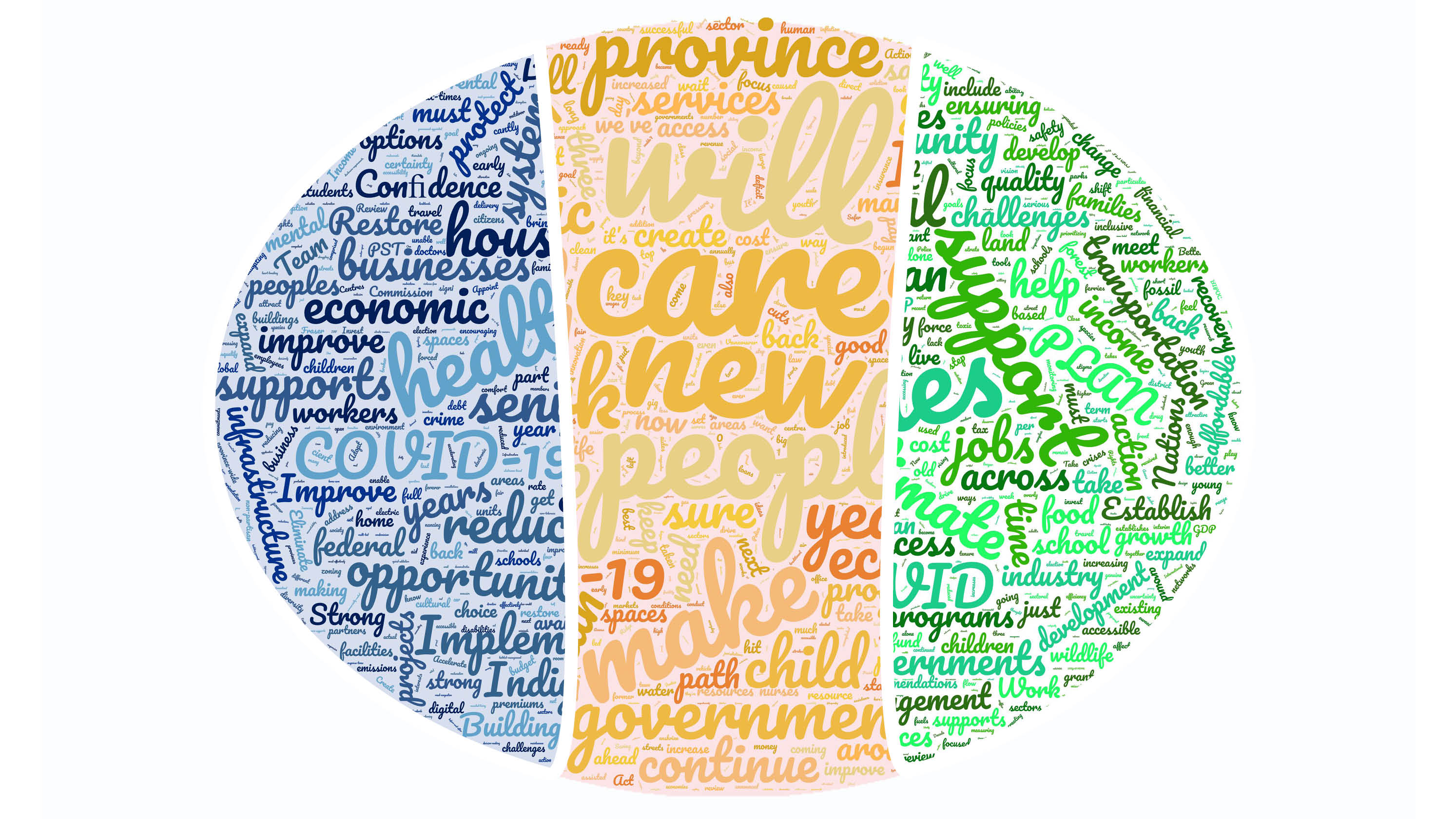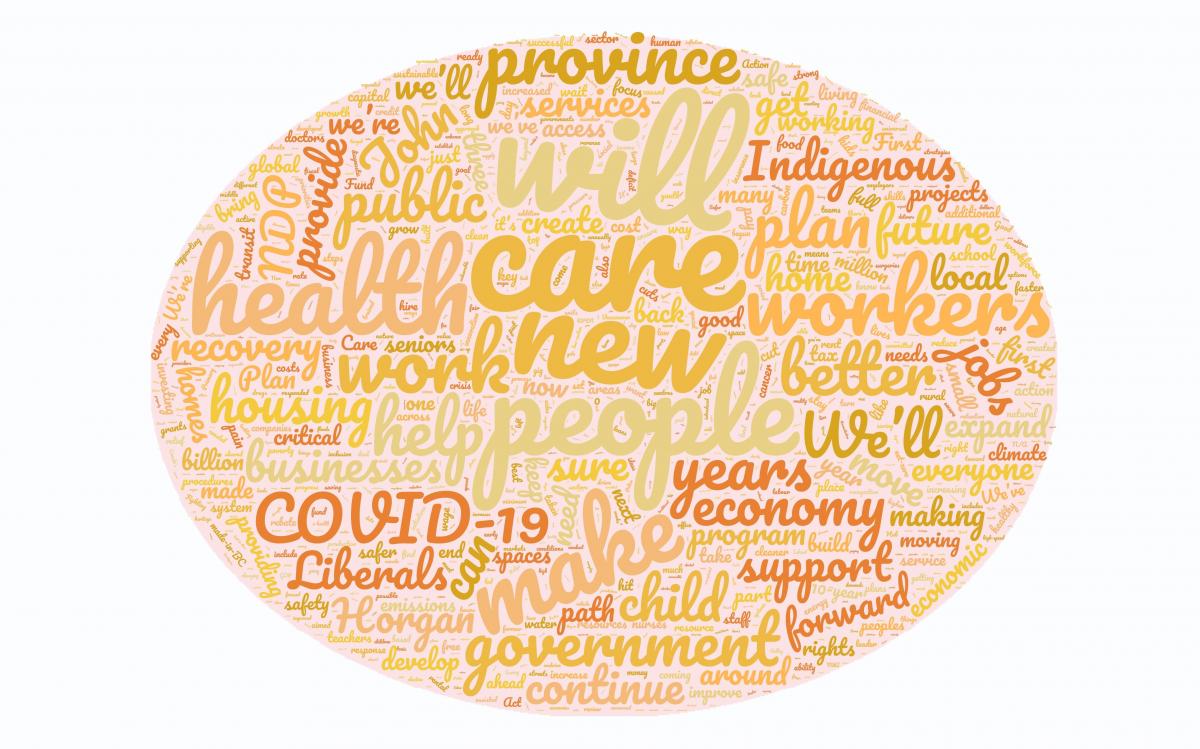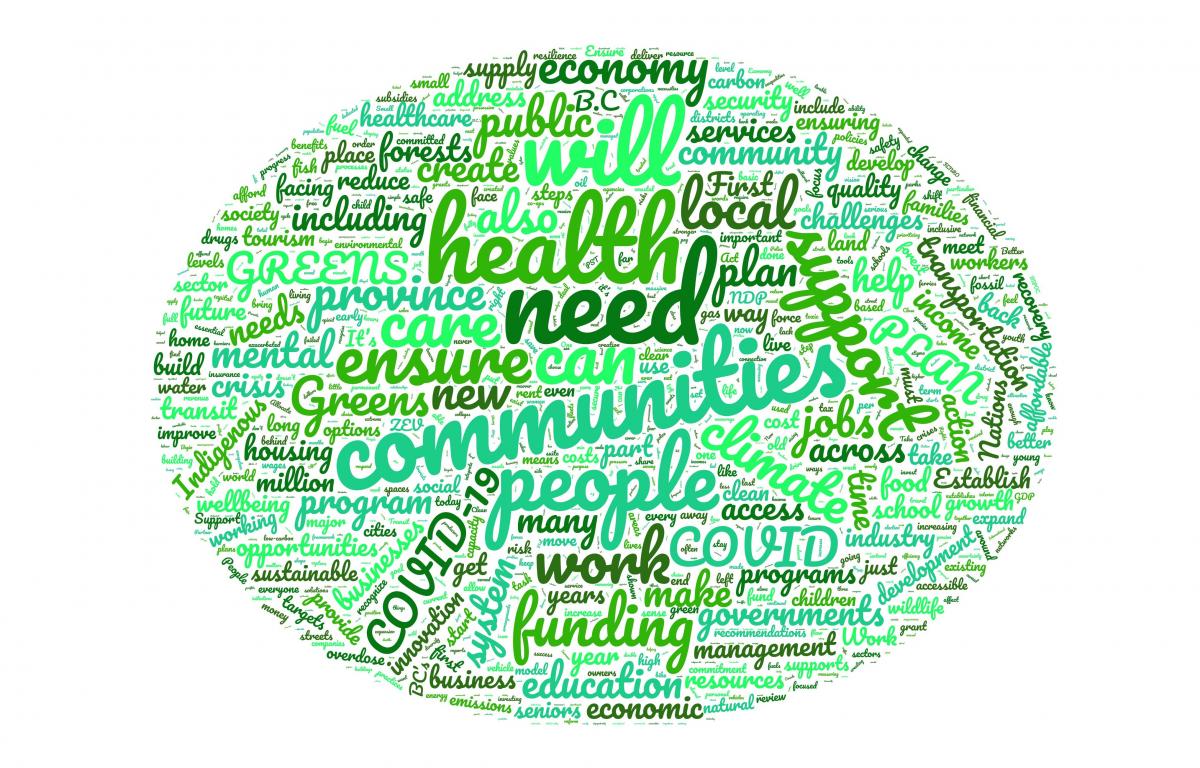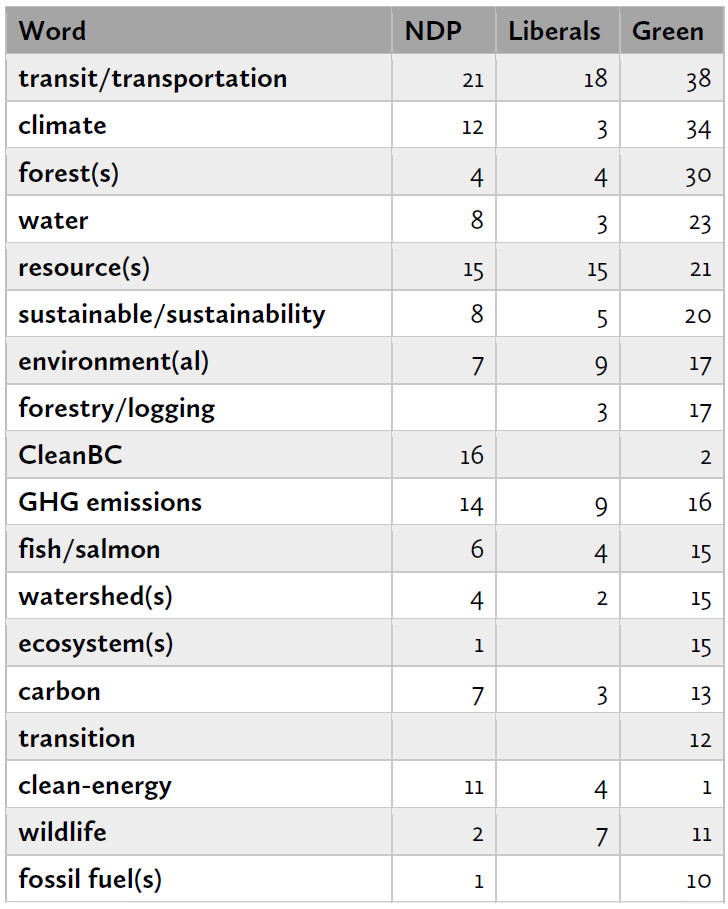
With just over a week to go until election day, are you reading the election platforms of BC’s main parties?
If you don’t have time (and who does?), today is your lucky day – because we have summarized the platforms of the NDP, the Liberals and the Greens in three handy, easy-to-look-at word clouds. (The words in the clouds are all taken from the platforms – the more frequently a word appears in a platform, the larger it will be in the word cloud. Less frequently used words will not appear.)
Why does this matter? It turns out you can learn a lot about what matters to someone by taking a step back and looking at what they like talking about. In addition to the word clouds, we’ve done a bit more analysis and can tell you a bit about the environment-related words that come up most often in each platform.
The big picture
As you will see from the word clouds, some similar words come up in all three party platforms. This does not, of course, mean that the parties are using each word in the same way or talking about the same policies. Just because the BC Liberals and the BC NDP both talk about healthcare does not mean that they share ideas about how it should be managed.
However, it is reassuring to learn that all three parties talk about many of the same goals, suggesting more opportunity for cross-party collaboration than might be the case otherwise. Three words appear in the top five nouns used by each party (excluding party names and the word “government”): communities, health and work. In addition, “public” (used by the Liberals) is pretty similar to “people” used by the NDP and Greens.
Top 5 nouns

Take a look at the word clouds for each party and see what other themes emerge. These word clouds do not, of course, display all of the words used in the platform (the less frequently used words would become illegible). However, as an environmental organization, we find the prominence (or absence) of the word “climate” in the three word clouds to be pretty striking. Can you find it? What other words strike you as significant? Tell us in the comments below. All of these words are easily visible in all three word clouds. Click on each word cloud below for a close-up.
NDP

Liberals

Greens

Counting on climate and environmental action
Because we are an environmental organization, we’re particularly interested in how often the parties talk about climate change and the environment. So we counted them (well, not really, wordclouds.com does this automatically).
Here is the list of the environment-related words that at least one party used 10 times or more, together with how often each party uses them. If you click on the list you can get a longer list of environment-related words used 5 times or more (for words appearing less than 5 times, you’ll need to do your own count – sorry).
Once again, the frequency of words in the platforms does not, by itself, tell you about the strength of environmental and climate change commitments. If a hugely strong commitment on climate change is mentioned briefly, it will not increase a party’s count as much as multiple mentions of a weak or even harmful policy.
Therefore, we encourage you to read the specifics in the full party platforms and form your own opinions. However, word count does tell us that having the BC Greens engaged in this election means that climate change and the environment are being talked about more.
Conclusion
In an election it is crucial that environmentally-minded people vote with the health of our communities, children and planet in mind.
But in addition to voting, challenge your candidates and BC’s parties to make more environmental commitments. This is particularly important for members and supporters of the parties that perhaps could have had environmental issues a bit more front-and-centre in their platforms.
The environment does not belong to any one party. We need to be asking all parties to continue to ramp up their environmental leadership.
UPDATE: Our partners at Organizing for Change have gathered responses from each major BC party regarding a number of environmental questions. Take a look at this helpful resource to see where the different parties stand on a variety of environmental and climate issues facing BC.
This post is authorized by West Coast Environmental Law Association, registered sponsor under the Election Act, 604-684-7378.
